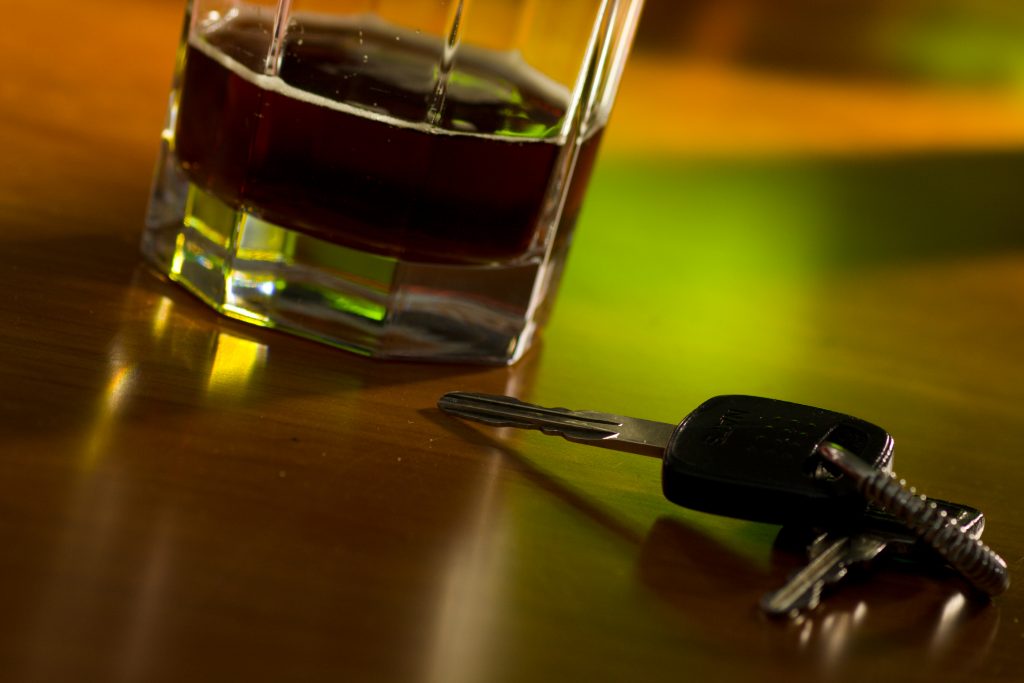Dangers of Drunk Driving in Florida
The time us upon us to enjoy whiskey-spiked eggnog and other celebratory drinks at holiday parties or gatherings, and although Florida has experienced an incredible seven percent decrease in drunk-driving related fatalities in the last year, there is no such thing as too much improvement in this area. In 2017, 839 people lost their lives in Florida due to DUI related crashes. As a nation and in Florida, drunk drivers are the largest cause of traffic deaths, accounting for nearly a third of the nation’s traffic fatalities.
We at The Eberst Law Firm invite you to read our below article to remind you of the legal ramifications of driving while intoxicated, inform you about the methods that are in place that aim to reduce drunk driving, and assist you with how to handle your claim if you or a loved one have unfortunately been struck by a drunk driver. Additionally, please see our article regarding holiday driving safety and review the subsection “Eat & Be Merry, but Drink Responsibly” for tips about how to drive safely if you do plan to partake in alcoholic drinks this holiday season. Additionally, please review this Blood Alcohol Level Chart provided by Nolo to see how many drinks it takes for your body’s blood alcohol concentration to rise above the legal limit.
Florida Legal Ramifications for Drunk-Driving
In Florida, the penalties for driving under the influence vary by how many times an individual has committed the offense. First time offenders can face consequences including: up to six months of jail time, fines and penalties ranging from $500 to $2,000, license suspension ranging from 180 days to one year, and possibly being required to drive with a breathalyzer/IDD. The consequences become more severe which each subsequent offense of drunk driving.
According to a recent article by the Palm Beach Post, a first-time drunk driving offender in Florida is only required to install a breathalyzer if a judge has ordered this, if a minor was in the vehicle, or if the person’s BAC was .15 or above. This article goes on to state that MADD is lobbying Florida Legislature to require anyone who has been convicted of a DUI to install a breathalyzer in their car. Throughout the United States, more than 30 other states automatically require breathalyzers be installed for first-time drunk-driving offenders. Lastly, the article concludes that between December of 2006 and December of 2017, breathalyzers stopped just over 78,000 attempts to drive while drunk in Florida.
Methods of Reducing Drunk Driving in Florida
According to information provided by the Center for Disease Control (CDC), there are several methods for reducing drunk driving in the state of Florida. Below are some of these methods:
- Sobriety Checkpoints- Police officers can stop vehicles at certain locations to see if drivers are intoxicated. They may also administer breath testing if they notice certain signs of intoxication. Sobriety checkpoints are legally allowed to be performed in Florida.
- Laws against Drunk Driving- In the United States, it is illegal to drive with a Blood Alcohol Content (BAC) at or above 0.08%. For drivers under 21, they not allowed to drive with any measurable amount of alcohol in their bloodstream; this set of laws is known as “zero tolerance” laws. Additionally, people in the United States are not allowed to legally begin drinking until they are 21 years old.
- Mass Media Campaigns- These campaigns are geared towards spreading messages about the physical dangers and legal ramifications of drunk driving. As an example, think of billboards you see that advocate for people to “Drive Sober”. These campaigns could be sponsored by certain groups, such as Mothers Against Drunk Driving (MADD).
- Administrative license revocation or suspension laws- Police officers can revoke the license of a driver who tests at or above the legal BAC limit or refuses testing. The length of the suspension varies by state.
Help, I’ve Been Hit by a Drunk Driver in Florida
The first step of being involved in a crash with an intoxicated person is to call the police; this way you ensure that the accident is reported and documented. This way you make sure that the person who was driving drunk and struck you will face the legal consequences for his or her actions. It is possible that the driver may beg you to not inform the police, but rest assured that this is in your best interest; if the individual begins acting aggressively, be sure to make the cops aware of this and be sure to take steps to keep yourself safe, whether that be temporarily leaving the scene or locking yourself in your vehicle. When the police arrive at the scene, cooperate with them and try to remain as calm as possible. If they ask you if you were injured, never say no; you may be so amped up from the crash that you don’t feel any pain. Expect that the police will document everything that you (and the other party) tell them, which will include injury information.
The next step is to begin gathering as much information as possible related to the crash. You should obtain all the contact and insurance information from the person you were in the accident with (the police will also take down most of this information on this report, but sometimes they do make mistakes; however, if you don’t feel safe taking down the information personally from the intoxicated driver, just ask the police for the claim number for the accident report so you may obtain a copy when it is ready). Even further, take any photos and/or videos of your injuries, accident scene, property damage, or even of the drunk driver. Video footage will be especially helpful if the intoxicated individual is exhibiting blatantly drunk behavior, such as yelling or acting aggressive and not walking in a straight line. At The Eberst Law Firm, we will conduct our own investigation of your crash, but it is always helpful that you gather as much information as possible to bolster our own findings.
One of the most important steps to take is to ensure that you seek immediate treatment after being struck by a drunk driver. Even if you do not feel like you sustained injuries from the crash, the adrenaline from the crash could cause you to temporarily not experience pain. Additionally, it is very important that a medical professional document your injuries as soon as possible after the crash.
Struck by a Drunk Driver? Consult with The Eberst Law Firm
Lastly, make sure you consult with an experienced personal injury attorney as soon as possible after being involved in an auto accident with a drunk driver. Cases involving an intoxicated driver have many intricacies that regular auto cases do not have, and it takes an experienced, dedicated attorney to handle these types of claims. The Eberst Law Firm has handled many cases dealing with drunk drivers, and our attorneys are prepared to fight for you to ensure that justice is sought and that the drunk driver has to pay legal ramifications for his or her wrongdoing.
Contact The Eberst Law Firm today for a free consultation by calling 772-225-4900 or by emailing us. We look forward to applying our experience and expertise toward helping your family recover from injuries caused by a negligent Florida drunk driver.
Sources
https://dui.drivinglaws.org/florida.php
https://dui.drivinglaws.org/drink-table.php
https://eu.palmbeachpost.com/story/news/crime/2018/10/09/latest-state-drunken-driving-deaths/6866308007/

